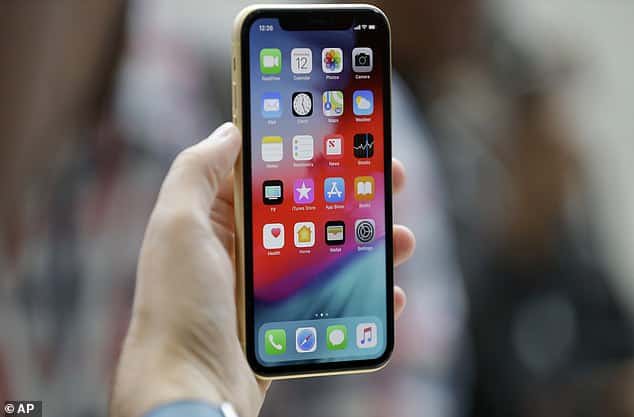
Apple has agreed to be more transparent with users when new software updates are likely to throttle or slow down the performance of their iPhones.
The tech giant signed an agreement with the Competition and Markets Authority (CMA), a UK watchdog, that it would be ‘clearer and more upfront’ with users in the future.
It comes after Apple faced widespread backlash last year over its decision to slow down the performance of older iPhones as their batteries degrade.
The CMA raised concerns with Apple last year over its throttling practices and the lack of warnings being given to consumers.
‘Since the CMA raised its concerns, Apple had already started to be more up front with iPhone users,’ the watchdog said in a statement.
‘But today’s announcement locks the firm into formal commitments always to notify people when issuing a planned software update if it is expected to materially change the impact of performance management on their phones.’
As part of the agreement, Apple said it would provide more accessible information about ‘battery health and unexpected shutdowns.’
It also pledged to give guidance on how iPhone users can maximize their device’s battery health, such as changing settings, turning on low power mode or replacing the battery.
This could prevent users from taking unnecessary, and often expensive, steps like getting their iPhone repaired or replaced.
The CMA opened its investigation in early 2018, not long after the throttling issue, often referred to as ‘batterygate,’ first developed.
At that time, consumer complaints forced Apple to admit that it intentionally throttled phones with older batteries.
It moved to offer battery replacements for $29 – a discounted price to the usual $50 charge.
However, that didn’t stop many from filing lawsuits against Apple over the throttling controversy.
Last March, some 60 lawsuits had been filed by users that claim Apple slowed down older iPhones to make them buy new ones.
The plaintiffs argue that Apple didn’t fully disclose the ‘nature and scope’ of the battery problems to customers
They also allege that the firm failed to tell consumers that if they upgraded to a new iOS version, Apple would automatically install a feature that impacts the phone’s speed and performance.
For years, consumers had complained that their iPhones seemed to slow down once Apple released a new model.
The consumers who filed the lawsuit are seeking financial awards, attorneys’ fees, free iPhone battery replacements and a corrective advertising campaign, the Journal said.

